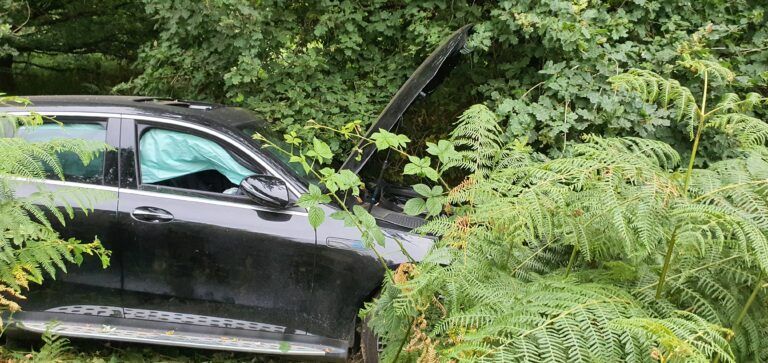A group of connected vehicle experts are undertaking a new project to give emergency services and road operators in the UK essential data about road crashes in real time, with the aim of assisting with faster response times and providing more detailed information on incidents.
Start-up firm VESOS Solutions is leading the TeCall project, which has received a grant from the 2022 Transport Research and Innovation Grants (TRIG) program, delivered by Connected Places Catapult on behalf of the UK’s Department for Transport (DfT).
Until now, eCall, which has been mandated on all newly-approved cars and light vans since 2018, has focused on the voice channel which is initiated when the airbag triggers or the SOS button is pressed.
VESOS’s TeCall project will further analyze data sent by eCall in real time and create a proof of concept demonstrator. In the event of a collision with an airbag activation, it can almost instantly provide emergency services and highway operators with vital enhanced information detailing a vehicle’s exact location, the vehicle make and model and propulsion type, and other data that enables them to respond more effectively and be better prepared.
The TeCall project will ensure only genuine and validated eCall data is presented to emergency services and road operators with false alarms filtered out and data then presented automatically into emergency command and control systems.
The project aims to demonstrate benefits across all road types to fire, police and paramedics, in addition to benefits to road operators shown in an earlier project awarded to VESOS to study the use of eCall for generating faster responses to incidents.
On rural roads, where statistically 60% of annual road deaths occur, the automatic sharing of the exact location will get help to more people during the “platinum 15 minutes” for trauma interventions. Before heading to a collision, firefighters, paramedics, and doctors will be better prepared, knowing what vehicle they will find and where exactly they need to go, VESOS noted.
Over one in four cars and vans on UK roads now have eCall. There are now more than 10,000 UK alerts every month and around one automated activation every hour.
The project is being supported by Warwickshire and Surrey Fire and Rescue Services, with other county FRS targeted to join the project. In addition, VESOS has secured the support of Agilysis who will assist in analyzing historical post-crash data. VESOS hopes to identify whether there are vulnerable people in the vehicle, how many occupants are on board, and whether they are in hazardous locations such as on motorway running lanes or slip roads.
“eCall has been mandatory for five years, but up until now its true life-saving value has not been realised,” commented VESOS co-owner and former police inspector Andy Rooke, who has worked on eCall for 20 years. “So far, emergency services have largely used the voice aspect of eCall, but that – while still beneficial – relies on people in the vehicle being conscious, able to speak and hear. We can achieve far greater benefit if we use the data aspect too.”
The first VESOS project undertaken for National Highways in 2019 showed how eCall could detect incidents and stopped vehicles faster by using data direct from the vehicle. “This was the trigger to set up VESOS as an eCall solutions company,” added co-owner and telematics specialist Danny Woolard.
“This new TRIG22 award will enable us to take TeCall to Proof of Concept and develop new use cases, particularly for the emergency services, and help identify vulnerable drivers. The time savings from eCall have been shown in studies across Europe to save lives by getting the right response to the scene quickly,” Woolard explained.
This project will run for six months and will enable VESOS to develop its intellectual property to a demonstrable platform.





